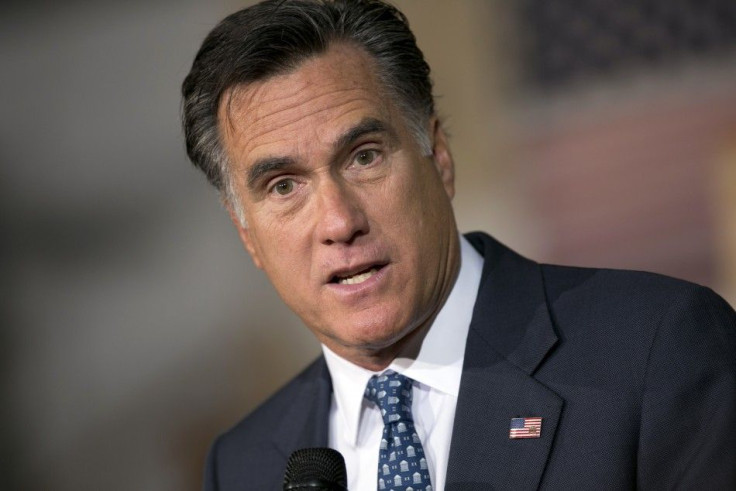Romney Warns Of 'National Education Emergency,' Slams Teachers Unions

Mitt Romney made his first prominent foray into education policy on Wednesday, calling the state of American schools a crisis and decrying teachers unions that he said are stymieing reform.
Speaking at an economic summit hosted by the Latino Coalition, Romney denounced the entrenched interests who have a fierce determination to keep things just the way they are in the education establishment. The presumptive Republican nominee said that a preoccupation with fixing the ailing economy has overshadowed the need to address the country's struggling schools and students.
This is the civil rights issue of our era and it's the greatest challenge of our time, Romney said after noting how minority students are lagging behind their peers, adding that the country is in the midst of a national education emergency.
Romney faulted teachers unions for rejecting reform and attributed what he called a lack of action to the outsize influence in elections and campaigns of teachers unions, long a bastion of support for Democratic candidates.
Whenever anyone dares to offer a new idea the unions protest the loudest, Romney said. The teachers unions are one of the Democrats' biggest donors and one of the president's biggest campaign supporters, Romney added. So Obama has been unable to stand up to union bosses and unwilling to stand up for our kids.
But while Romney trumpeted new measures to expand school choice and hold teachers accountable, he offered few specifics to distinguish himself from President Obama's education policies. His call to expand parental choice in an unprecedented way and to gauge teacher quality and then reward the best-performing teachers mirrors the Obama administration's policies.
Indeed, the Obama administration has angered some of its education allies by aggressively pushing to increase the number of charter schools and to have states implement new systems for evaluating teachers. The 3.2 million-member National Education Association endorsed Obama last summer, but many of its members said they did so reluctantly.
The Obama administration first advanced those policies with a program called Race to the Top, initially included in the 2009 stimulus package, that had states compete for federal education dollars by offering proposals to expand charter schools, implement teacher evaluation systems that could be linked to firing and compensation and craft plans to revive failing schools.
More recently, the administration has offered states waivers that would free them from a provision of the No Child Left Behind education overhaul. The provision would have penalized schools that did not achieve total proficiency on math and reading test scores by 2014 -- a goal that most educators see as unattainable -- and Obama has allowed states who submit school reform proposals to opt out. So far, 26 states have applied for exemptions.
During the Republican presidential primary, Romney chided Rick Santorum for voting in favor of No Child Left Behind in 2001. But Romney had voiced support for No Child Left Behind in the past, saying in 2007 that he was very proud of having backed the law and praising its central premise of holding schools accountable through student test scores.
Romney seemed to reprise his earlier support for the law on Wednesday, saying its rigorous testing regimen helped our nation take a big leap toward bridging the information gap. He added that No Child Left Behind has weaknesses and said that if he were president, he would prod Congress to update the law (when he announced he was offering states waivers, Obama said he was compelled by Congress' lack of progress on addressing No Child Left Behind).
© Copyright IBTimes 2025. All rights reserved.





















